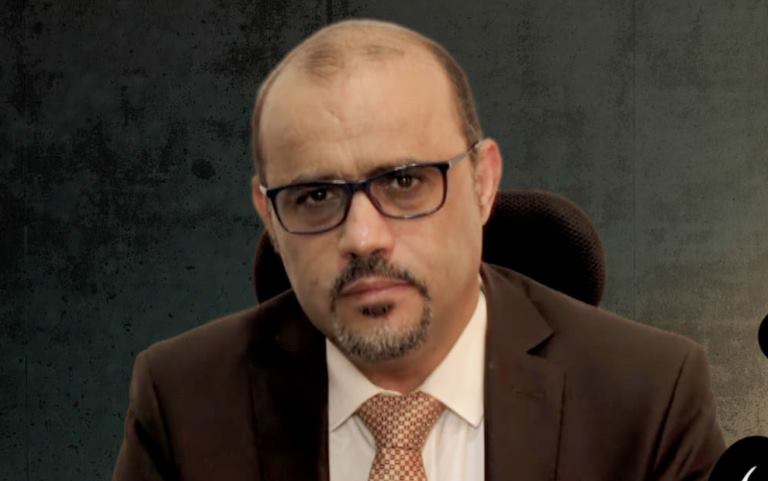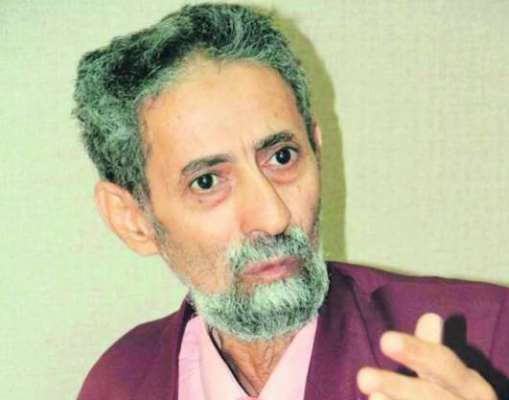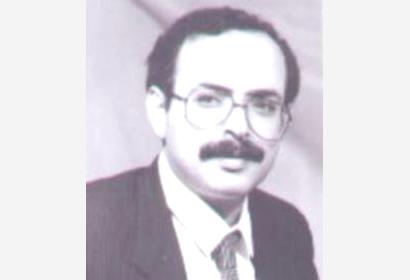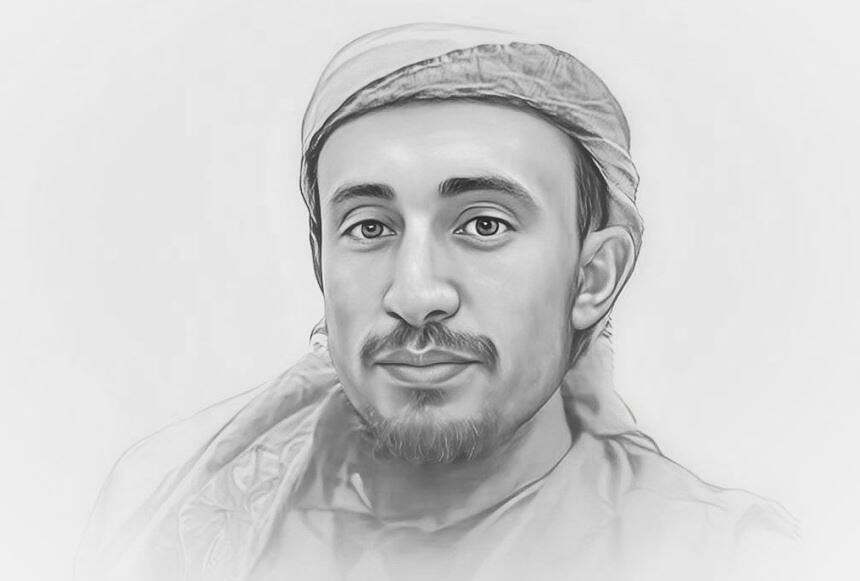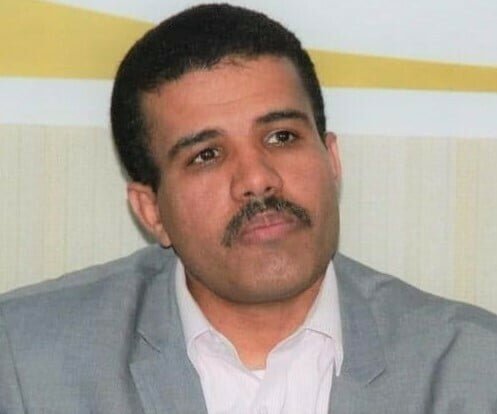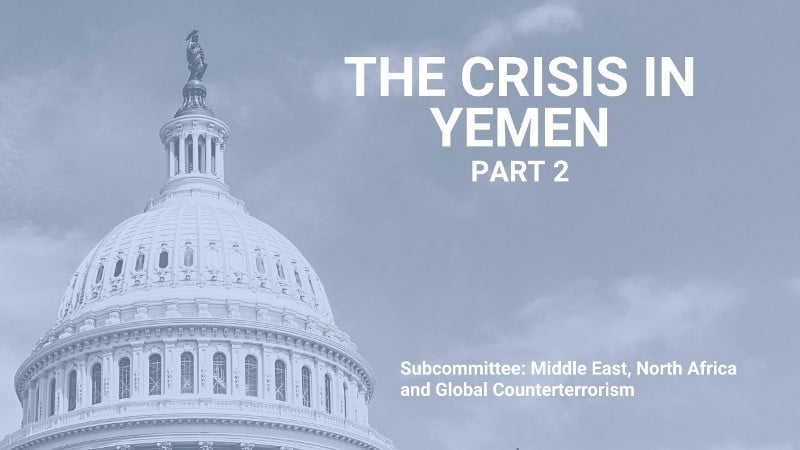
Briefing of the US envoy to Yemen Tim Lenderking on challenges and peace efforts
The US envoy to Yemen, Tim Lenderking, gave a briefing on the situation in Yemen and the challenges of peace efforts, on Wednesday, April 21, 2021.
The following is "Nashwan News", republishing the briefing text of the US envoy to Yemen on Foreign Affairs Subcommittee on Middle East, North Africa and Global Terrorism:
TIMOTHY A. LENDERKING, U.S. SPECIAL ENVOY FOR YEMEN
WASHINGTON, D.C.
APRIL 21, 2021
Share
Introduction
Chairman Deutch, Ranking Member Wilson, Members of the Subcommittee, thank you for the opportunity to speak with you about U.S. policy on Yemen. The Biden-Harris Administration has prioritized bringing about an end to the conflict in Yemen, in full support of UN Special Envoy Martin Griffiths’ efforts, and has dedicated extensive resources to easing the humanitarian situation in the country.
I look forward to updating you on the progress we have made in these last few months, the challenges that we still face, and the efforts we can undertake together to help bring about an end to this terrible war. As you know, the President and the Secretary believe – and I share their conviction – that Congress plays an essential role in the Administration’s efforts and is key to helping end the conflict in Yemen.
Our primary goal in Yemen remains protecting long-term national security objectives for the United States, while improving the situation of Yemeni civilians themselves. This requires a unified, stable Yemen that is free from foreign interference; that controls its own borders and exercises sovereignty over its entire territory – particularly to counter terrorist elements; and that can contribute to safeguarding navigational rights and freedoms in the Bab Al Mandeb strait, essential to global shipping.
That means not only curtailing the malign influence of Iran in Yemen, but also supporting a Yemen where no foreign country has undue influence or control. Yemen’s relationship with its neighbors should be one of economic and regional cooperation, not one of military intervention. Over the course of this hearing, I hope to provide some insight into how we can achieve that goal – as well as what stands in our way.
Current Efforts
Since President Biden announced my appointment on February 4, I have travelled to the region four times to push the parties toward a ceasefire and political negotiations. I have worked to build an international and not just regional consensus toward solving the conflict. On my second trip, I met or spoke with leadership of all the six countries of the Gulf Cooperation Council and the Republic of Yemen Government. These leaders expressed a genuine commitment to our common goal; they believe, as we do, that the time to end the conflict in Yemen is now.
In subsequent trips, I have made multiple stops in Muscat and Riyadh. The Government of Oman is playing an integral and highly productive role in facilitating negotiations. I can attest to the Sultanate’s contribution, to the personal commitment of Oman’s leadership and to their unstinting efforts toward facilitating dialogue to resolve this conflict. This level of Omani engagement marks a positive, new development that can help mitigate some of the challenges we have faced in past peace efforts.
For years, the United States has communicated to the Saudi government that there is no military solution to this war. Since my appointment, I have pressed Saudi officials to pursue peace seriously. As a result of consistent U.S. engagement, we believe the Saudis are ready to end the war in a responsible way. They are in agreement with us that the time for peace is now. Our Saudi counterparts are working closely with the UN Special Envoy and with the Government of Oman to achieve this objective.
What has been most striking to me is the recognition and understanding of the necessary role of Houthi representation in any post-war Yemeni government. No longer is anyone suggesting Houthi representatives be locked out of any future settlement — a popular refrain when the conflict began.
There is an acceptance that the Houthis will have a significant role in a post-conflict government, if they meaningfully participate in a peaceful political process like any other political group or movement. The Houthi leadership has received this message clearly. I again call on the Houthi leadership to take this opportunity to stop the fighting, come to the table, and assume a productive and integral role in a better future for Yemen.
In Washington, discussions about the Yemen conflict focus on the regional actors. We cannot forget, however, that this is at its heart an intra-Yemeni conflict, rooted in longstanding grievances and tensions that have been exacerbated by years of war and the proliferation of armed groups. As such, only Yemenis can truly resolve this conflict — the kind of durable resolution that is needed to reverse Yemen’s humanitarian crisis requires a plan for addressing those grievances.
Although I find the regional commitment of Gulf countries – including Saudi Arabia – to end this conflict promising, it alone is not enough to bring Yemen the relief it needs. More work is needed to ensure that all Yemeni parties, particularly the Houthis, are ready to put down their guns and compromise for the sake of peace. This will require a unified, international effort.
As the international community knows, UN Special Envoy Griffiths has a sound proposal on the table to bring about an end to this war. It supposes a nationwide ceasefire that includes actions to facilitate the movement of humanitarian goods and increase economic activity followed by a transition to inclusive political talks with meaningful participation from women, civil society, and marginalized groups. It is a proposal that all sides seem to support in theory; we are working now to turn it into reality.
We must be realistic about this: we face significant challenges on the road to peace. I maintain, however, that we have momentum toward bringing the conflict to an end, and we are working hard to maintain and build upon this progress.
Humanitarian Crisis
I want to start by addressing the humanitarian situation. There is no greater priority when it comes to Yemen. The level of suffering there is unimaginable. At least one Yemeni child dies every 10 minutes from preventable causes. And this war has gone on for more than six years. I think about that every day.
The roots of this crisis are deep. At the beginning of the war, humanitarian leaders stated that “Yemen after five months looks like Syria after five years,” because the situation in Yemen was already so precarious before this war began. And now the economy is collapsing, leaving families unable to purchase even the most essential goods.
Healthcare and other basic services are almost non-existent for most Yemenis. Humanitarian assistance is offering a critical lifeline for millions and helping prevent a famine, but it will never be enough. It cannot restore the economy or repair broken healthcare systems. In fact, as long as the war continues, the humanitarian crisis will continue to get worse. There are no quick fixes. Only through a durable end to the conflict can we begin to reverse this crisis.
In the meantime, we must do everything we can to mitigate suffering. And for that reason I would like to state unequivocally that fuel must be allowed to enter regularly through Hudaydah port. The Republic of Yemen Government bears responsibility to address this issue, and Saudi Arabia must not stand in the way of it doing so. Similarly, the Houthis bear responsibility for then ensuring that fuel moves freely throughout the areas under their control. In all instances, the United States opposes restrictions that arbitrarily delay or deny essential commodities from getting to the civilians who need them most.
Fuel imports into Hudaydah and the neighboring Saleef port have been very low for the past two and a half months. Fuel is the lifeblood of all economic activity. Fuel is critical to support the delivery of humanitarian assistance – to power hospitals, ensure the provision of food and access to water, and generally help alleviate the suffering of the Yemeni people.
While fuel continues to flow through other ports, these ports cannot fully make up for flows through Hudaydah and Saleef ports. We are heartened that commercial imports of food and other commodities continue to move through the port at normal rates, as do goods imported for humanitarian assistance purposes. We know that fuel shortages, however are making the transport of these goods more expensive.
I have raised this issue regularly with senior Yemeni and Saudi officials. Although four ships arrived last month and the Republic of Yemen Government has announced its intention to allow in three more, it is not enough.
The recent fuel shortages are not a new issue. The international community recognized the importance of establishing mechanisms to ensure the continued flow of goods through Hudaydah port in the 2018 Stockholm Agreement. In that agreement, the parties reached a compromise that called for depositing Hudaydah port revenues in a special account in the Central Bank of Yemen branch in Hudaydah and using the funds to pay the salaries of Yemeni civil servants – salaries that would have provided urgently needed purchasing power to households living on the margins. Unfortunately, as the UN Panel of Experts has documented, the Houthis have repeatedly violated this agreement and diverted those funds to their war effort, contributing to the current impasse.
I am heartened, however, to see a notable increase in the monthly flow of food into Hudaydah. March 2021 saw 446,025 tons of food enter the port, one of the highest amounts in five years and 45% above the 2020 average. It is, of course, not enough, but shows that the system can work with cooperation from the parties to the conflict and effective UN oversight.
The movement of humanitarian and commercial goods has consistently been a casualty of the Yemen conflict — whether it is movement of goods through ports, roads, and across front lines; diversion of commercial goods; or bureaucratic impediments to humanitarian assistance. All of these are unacceptable. These persistent challenges make the imperative of a comprehensive ceasefire all the much more important. Although we can and must continue to tackle these challenges one by one, after six years it is clear that only by stopping the fighting can we durably address the obstacles to the free flow of humanitarian and economic activity.
The Houthi Assault Against Marib
The single biggest threat to our efforts right now is the Houthis’ single-minded focus on a military assault on the city of Marib. In the midst of six years of war, Marib has been a haven of stability, and a refuge for nearly one million internally displaced persons who have fled conflict elsewhere and have nowhere else to go. While international attention to the battle for this strategic city held by the Republic of Yemen Government has grown, the Houthis have slowly advanced.
A Houthi takeover of the city is not imminent, but they continue to move closer to their goal of encircling the city, potentially cutting off a population of 1.8 million, many of them extremely vulnerable. Humanitarian relief organizations warn this offensive risks triggering a tipping point that would overwhelm an already stretched humanitarian response. This offensive also risks provoking further fighting and instability in a way that poses the greatest threat to our current peace efforts.
We must ask ourselves: are the Houthis seriously interested in peace if they continue to advance on a city where they have faced such heavy opposition, especially in the light of the March 22 Saudi announcement proposing an easing of restrictions on Hudaydah Port and Sana’a Airport and a comprehensive, nationwide ceasefire?
Houthi Attacks Threaten American Citizens and the Role of Iran
One of the most important roles the U.S. Government plays anywhere in the world is protecting U.S. citizens abroad. I must stress that every time the Houthis launch a missile or an armed drone into Saudi Arabia – or elsewhere in the Gulf – there is a chance they will injure or kill an American citizen. These attacks have reached a fever pitch. Our Saudi partners have so far prevented a mass casualty event, and it is our hope that this never occurs, but the potential loss of American life is something that literally keeps me up at night. Since the year started, the Houthis have fired more than 150 UAVs into Saudi territory. This tally does not count the ballistic missiles they have launched. During one of my recent trips to Riyadh, the Houthis struck a civilian airliner in the southern Saudi city of Abha just minutes before I entered a meeting with the Saudi Foreign Minister. Thankfully, no one was hurt in the attack.
The Houthis continue to launch explosive boats towards Saudi ports and often fire missiles that hit key Saudi civilian infrastructure. Similarly, media reports note that the Houthi attacks have routinely threatened Aramco oil facilities in Jeddah, Dhahran, and Ras Tanura. These don’t just pose a threat to Saudi Arabia, they threaten the more than 70,000 Americans who live and work in Saudi Arabia, close to the sites the Houthis have struck. We have warned the Houthis multiple times about the danger of killing Americans. The Administration has publicly committed to help defend Saudi Arabia from these attacks. In doing so, we protect American lives and ensure the free flow of goods and energy.
That brings me to the role of Iran in this conflict and the need to be candid about the growing Houthi military capability due to support from Tehran. The Houthis receive considerable funding, training, and other support from Iran. Last October, an Islamic Revolutionary Guard Corps General named entered into Houthi-controlled areas of the country and is being called the Iranian “ambassador” “ambassador” to the Houthis. His continued presence in Sana’a casts doubt upon the Houthi assertion that they are not a proxy of Iran. If the Houthis are not acting as a proxy or partner of Iran, it is time they engage seriously in our efforts to reach agreement on a ceasefire and resume political talks. Each day the war continues, their relationship with Iran deepens. It is critical that we reach a comprehensive peace agreement that not only stops fighting between the Houthis and Saudi Arabia, but that forces the Houthis to participate in a peaceful political process and reduces the instability that Iran and other malign actors will seek to manipulate.
Importance of the Republic of Yemen Government
With regard to the Republic of Yemen Government, President Abdrabbuh Mansour Hadi remains the legitimate leader of Yemen. He was chosen in the last election held before the war, and UN Security Council Resolution 2216 recognizes his legitimacy as President. My recent engagements with President Hadi over the last few months have been productive and encouraging. I believe he has assembled a team that can bring about an inclusive and sustainable political solution to the conflict. My communication and partnership with the Yemeni Prime Minister and Foreign Minister is also strong, and we have worked closely to achieve tangible gains for the people of Yemen in the face of great adversity over the last few months. I believe that they are ready to compromise for the sake of the Yemeni people.
Many people have pointed out that the war has led to a proliferation of other power centers, outside of the Republic of Yemen Government. This is true, and it must be considered as part of a peace process. I would also stress, however, that institutions matter. Rule of law matters. Absent that, there is no hope for an orderly transition process. We must continue to work with the legitimate government of Yemen as we seek to reach a political solution.
Economic Support to the Republic of Yemen Government
I want to come back to the economic situation, and particularly the macroeconomic situation. Due to rising inflation, continued political instability, and limitations on the Central Bank of Yemen’s ability to conduct effective monetary policy, the country’s economy continues to suffer. The value of the Yemeni riyal has fluctuated significantly as a result of this instability, and this has real, serious consequences for Yemeni citizens.
Secretary Blinken personally attended the virtual March 1 High Level Pledging Conference for Yemen to highlight the need for greater donor support; he has spoken with numerous counterparts in Europe and the region to emphasis this point. We appreciate the generous contributions of our international partners at the March pledging conference and call on our partners to disburse these pledges in a timely fashion, but no amount of humanitarian aid or pledges will prevent a collapse of the Yemeni economy.
That will depend on building sufficient foreign exchange reserves to sustain essential imports, on restoring national economic institutions, and on empowering the private sector to develop Yemen’s resources and meet the needs of the population without interference from parties to the conflict. For this reason, we also ask all concerned parties to join us in finding ways to support the legitimate government economically.
The Yemeni Prime Minister and his new unity cabinet have demonstrated a real commitment to strengthening the economy and providing services, consistent with the Riyadh Agreement. This comes even after the entire cabinet was nearly assassinated in December by the Houthis in an attack that killed more than of 20 innocent bystanders.
We appreciate the Saudi government’s March 30 announcement that it would provide $422 million of subsidized fuel derivatives to the Government of Yemen, and we are working with our Saudi and Yemeni counterparts to ensure this much-needed assistance gets to where it is needed as soon as possible. We hope that the Saudis – and other partners – will continue to find ways to support the Republic of Yemen Government in the face of extreme economic adversity.
Improving the Yemeni Government’s ability to manage resources and deliver goods to its people can provide a strong signal of hope for the more prosperous future that awaits Yemen if it achieves peace and rebuilds. But without a unified and functioning Yemeni government heading into peace talks, these efforts will not succeed.
Human Rights and Related Issues
I am mindful of the human rights situation and how violations of international humanitarian law in this armed conflict and ongoing violations and abuses of human rights can threaten prospects for a durable solution to the conflict. Significant human rights issues are commonplace in Yemen including: unlawful or arbitrary killings; forced disappearances; torture and cases of cruel, inhuman, or degrading treatment or punishment; harsh and life-threatening prison conditions; arbitrary arrest and detention; and political prisoners. Unlawful recruitment and use of child soldiers, especially by the Houthis and serious restrictions on the exercise of the right to freedom expression, including by the press and through the internet, including violence, threats of violence, or unjustified arrests or prosecutions against journalists, remain of serious concern.
We continue to advocate for the release of wrongfully detained person, and we use tools at our disposal to encourage improved respect for human rights in Yemen. The scars these abuses are leaving on Yemen are deep and will continue to affect the population for decades. We believe accountability for these actions is a critical part of Yemen’s recovery.
Conclusion
As you can see, the challenges we face are immense. Only through a unified international effort based on a clear, nuanced understanding of the situation can we hope to make progress toward reaching the goals I have outlined. All of you play an important role in that effort, and that is why I am here today. Thank you for your support, and I look forward to your questions.
